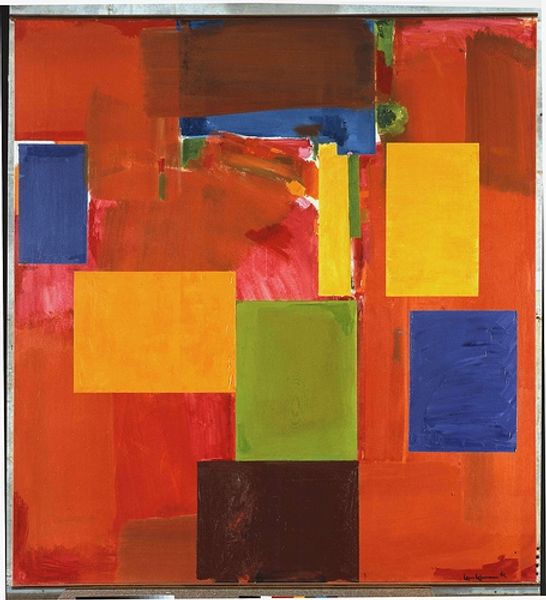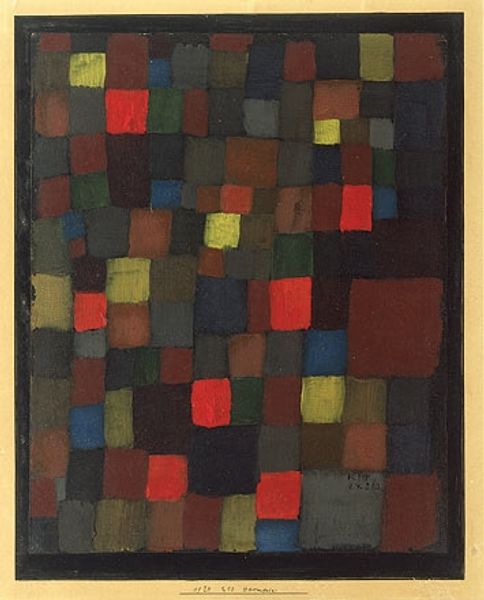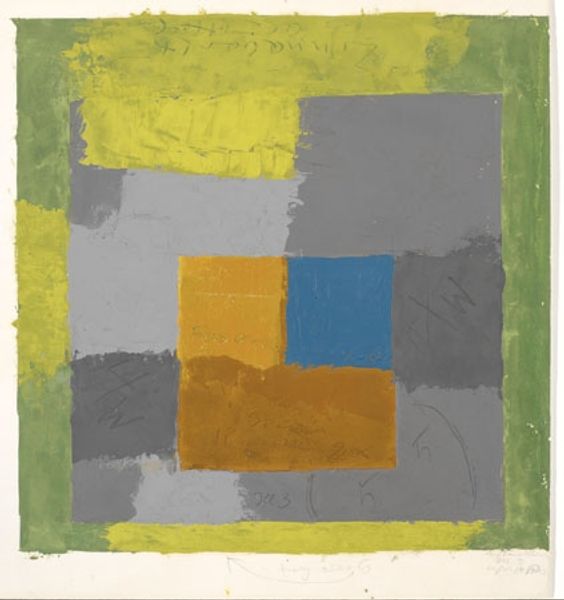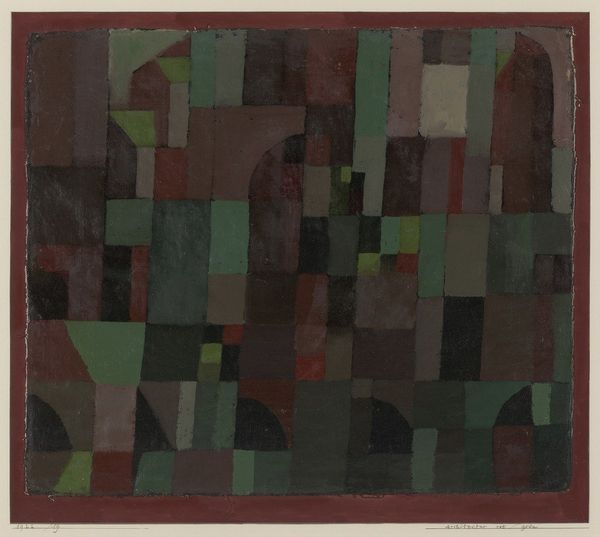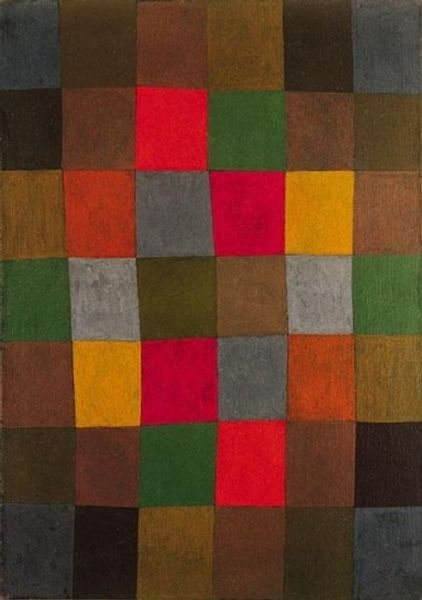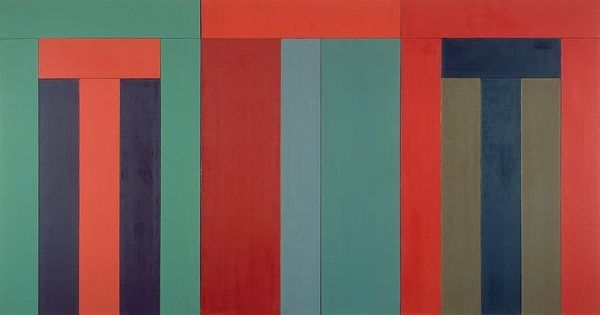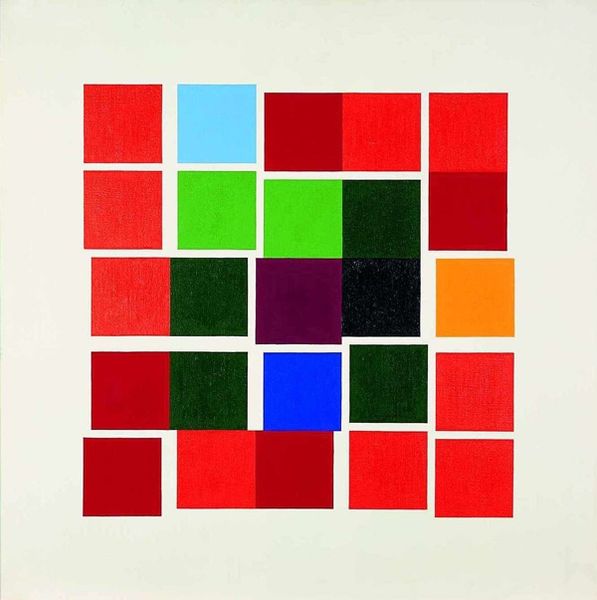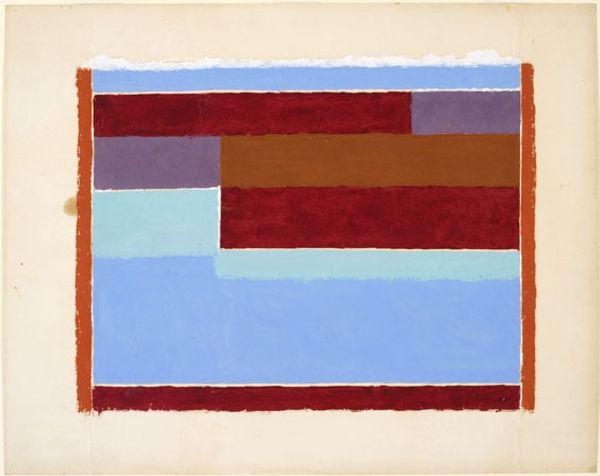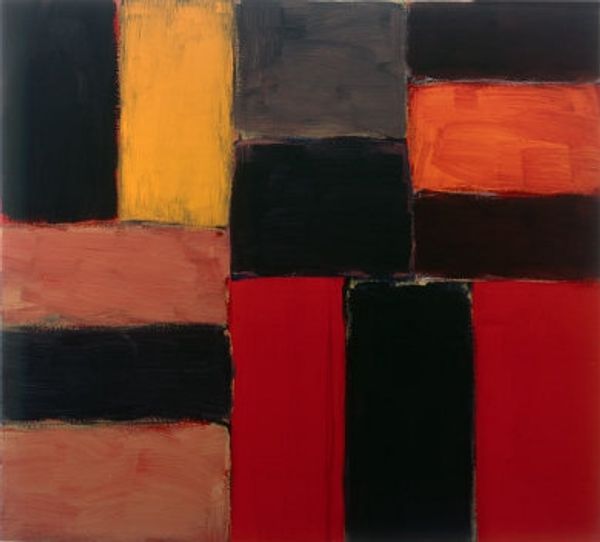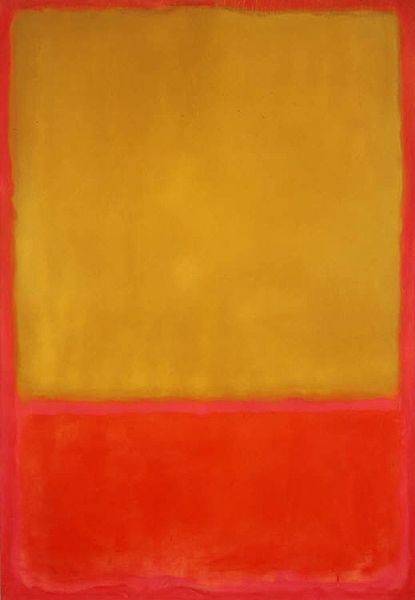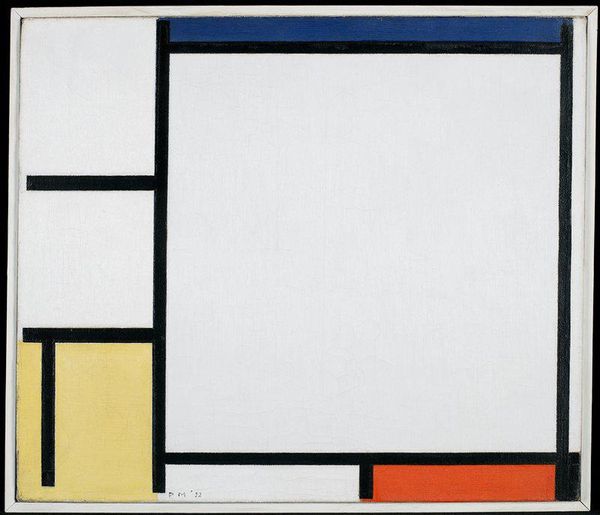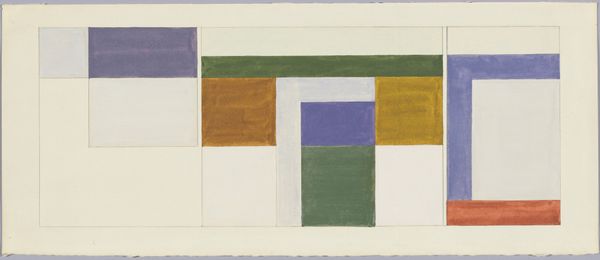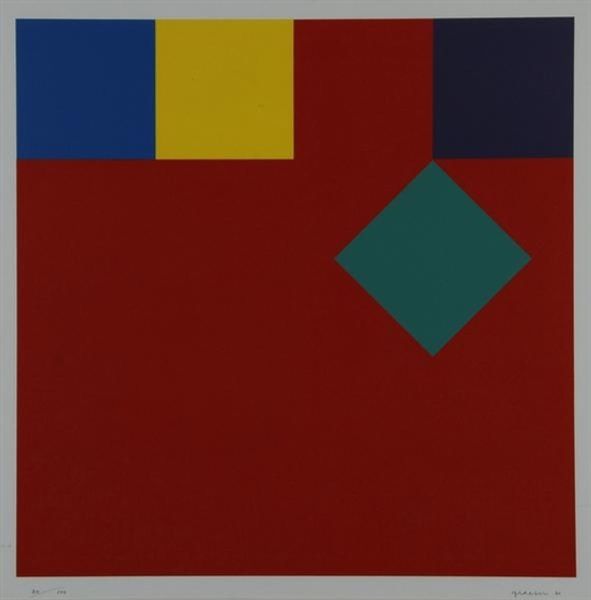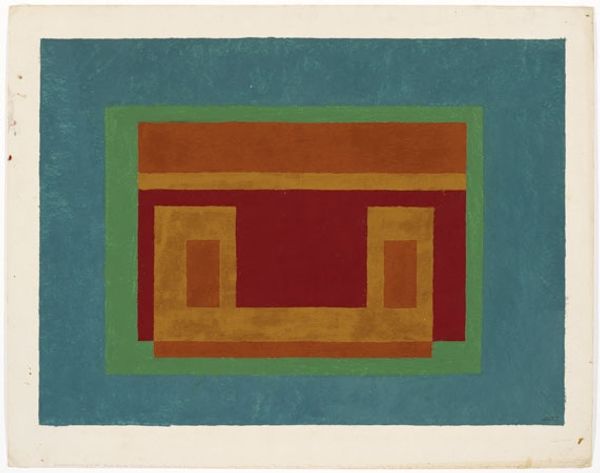
painting, acrylic-paint
#
abstract-expressionism
#
painting
#
pop art
#
acrylic-paint
#
geometric pattern
#
abstract pattern
#
geometric
#
geometric-abstraction
#
abstraction
#
modernism
Dimensions: 48 x 59 cm
Copyright: Johannes Itten,Fair Use
Editor: This "Untitled" acrylic painting, dating back to 1966 and attributed to Johannes Itten, is composed of striking geometric forms. I am immediately drawn to the interplay of dark and vibrant colors... It has a push-and-pull effect. What can you tell me about its broader artistic context? Curator: This work reflects a powerful dialogue between geometric abstraction and the social upheavals of the 1960s. Itten was deeply interested in the way color and form could reflect inner psychological states, rooted in a spiritual context stemming from his time at the Bauhaus, a space dedicated to equity in gender, but also, inevitably, constrained by it. We must remember the intense political ferment of '66: Civil Rights struggles, anti-war protests...Does this painting evoke any sense of societal tension or harmony to you? Editor: I hadn't thought of it that way initially, but now I do see how the blocks of color could represent fragmented elements of society, sort of battling for space. Is there an implied social commentary in the non-representational nature of it? Curator: Exactly. Abstraction itself became a statement, pushing against traditional, representational art often used to uphold dominant power structures. It demands that the viewer engage with it on a deeper, more subjective level, dismantling inherent hierarchies. But then how do you grapple with the whiteness of modernism at this time? It's always important to consider power dynamics when talking about abstract art. Editor: That’s such a vital point about modernism. I suppose it’s not enough to just appreciate the aesthetic, you also need to interrogate the social context that shaped it. Curator: Precisely. By exploring these tensions, we enrich our understanding, not just of art, but of ourselves and the world we inhabit. Editor: Thank you. I see the artwork in an entirely new and profoundly contextualized way now.
Comments
No comments
Be the first to comment and join the conversation on the ultimate creative platform.
